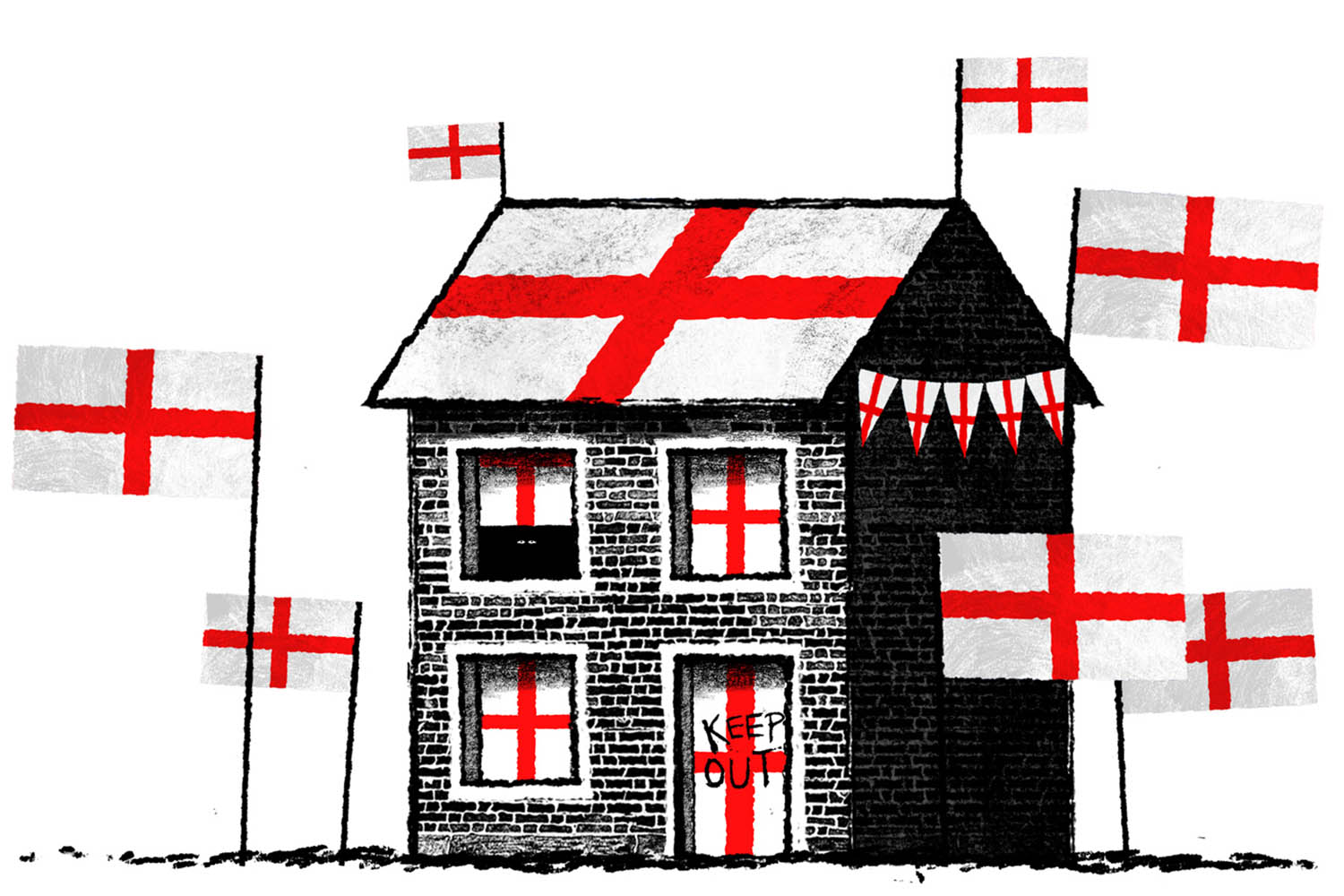
Flag-waving, patriotic spray-painting and men shimmying up lamp-posts. Why do I feel like I’ve been here before?
Cast your mind back, if you will, to 13 years ago. It was a simpler, sweeter time. Jamie Oliver had stopped terrorising schoolchildren about what’s in their lunchboxes and released 15-Minute Meals instead. Andy Murray beat Roger Federer for Olympic Gold. Somebody That I Used To Know by Gotye was, inexplicably, No 1 in the charts for four weeks straight.
And on 3 December 2012, Belfast city council voted on a decidedly pedestrian motion that would change the course of history, and ruin my Christmas in the process. Let me explain. On that date, a group of unassuming councillors voted to reduce the number of days when the union jack would fly atop City Hall. Since 1906, the flag had been flown there every day, year round. The council wanted to make it 18 days a year. At first glance, it sounds incredibly boring, right? Wrong. I cannot emphasise this enough: people lost their entire minds over this event.
In the weeks that followed, the city fell into ludicrous chaos. Christmas shoppers were besieged by protests from those who considered this a cultural war against “Britishness”. On the night of the vote, a group of protesters tried to storm the chamber. One bespectacled middle-aged woman draped a flag over herself, peered through a smashed window and screamed “No Surrender” (her legacy 13 years on is that this image is still preserved in YouTube videos and as an unlikely meme). Hillary Clinton, for some reason, got involved and told everyone to calm down.
Meanwhile, I worked at a shopping mall in Belfast city centre, where I sold costume jewellery to panicked boyfriends who realised three days before Christmas they had not bought any presents, and gorged myself on Auntie Anne’s pretzels in my lunch break. During the flag protests my otherwise cushty job was ruined by outside events. It felt like we were constantly being evacuated due to security alerts. The shutters would come down, the alarm would go off, we’d all grudgingly file out, anticipating (correctly) that we’d go back to work without incident half an hour later.
During the evacuations themselves we would usually stand shivering outside the pub next door, next to grumpy mall santas and equally pissed off chain-smoking elves. One man became briefly famous in a local news report because a security alert had interrupted his work Christmas dinner and – having already paid for the meal – he simply took his roast outside to eat on the street.
How else to explain little Robert Jenrick yanking his diminutive form up a lamp-post to attach a union jack?
It was a completely bizarre and ridiculous time. But we were all resigned to this. Used to it even. After all, many things in Belfast are bizarre and ridiculous, particularly when it comes to flags, an issue everyone can tend to get very upset about. It has long been a place where people engage in strange cultural traditions, such as scaling lamposts to attach union jacks to them. Or painting the kerbstones red, white and blue, resolutely ignoring the obvious comparisons with the French flag, not the British one.
For a long time all of this utter nonsense would have been difficult to understand if you lived in Britain. “Flags?” might have been the response. “Why would anyone care that much about a flag, of all things? You can’t eat a flag. There are more important things than what flies at the top of your lamp-post, or appears on your pavements. This flag obsession is surely nothing more than an outpouring of deep insecurity and hatred of an imagined ‘other’. It’s a persecution complex for those who are not, in any way shape or form, actually being persecuted. What a load of bollocks.” Or something similar to that.
Cultural osmosis has always felt like it worked only one way when it came to England and its westerly neighbour. Which makes it all the more bizarre and ridiculous that England now is currently living through a repeat of the 2012 Belfast flag (also pronounced “fleg”) protests. Or to put it another way, we are living through an Ulsterisation of England. A reverse colonisation. The brainworms have travelled across the water.
How else do you explain an explosion of St George’s flags spray-painted on shopfronts, or used to deface wildlife information boards in parks (“Is it because they just learned birds migrate?” jokes one person online). How else to explain groups of patriots accidentally painting the Swiss flag on roundabouts? How else to explain Reform candidate Nick Buckley posting images of Belfast men painting their pavements in France’s Tricolore and writing: “Let’s make this the new patriotic craze” and “It’s our country, let’s make sure no one forgets”.
How else to explain little Robert Jenrick yanking his diminutive form up a lamp-post in his local area to attach a union jack, grinning with two tiny thumbs up once his work is done? How else to explain endorsements from figures like Nigel Farage, or Tommy Robinson, who says anyone offended by the “UK flag” “doesn’t belong here” and can “fuck off back to the intolerant shithole you came from”? Or salivating declarations from Dan Wootton – who is from New Zealand – saying: “WE ARE PROUD OF THIS. NO EVIL FORCE WILL CHANGE THAT.”
I mean, it’s gotta be a latent appreciation of Ulster culture, right? It has to be British people looking across the Irish Sea and adopting things out of neighbourly conviviality, right? Because if it’s not that, then it’s something much worse. It’s something hateful, spiteful, pointless and embarrassing. It’s something meant to intimidate, to incite and to exclude an imagined “evil force” that does not exist.
England’s “Operation Raise the Colours” is no more a military operation than Belfast’s “Save the Fleg” was a humanitarian mission. Both of them are the dying whale songs of cultural insecurity, of intolerance cloaked in patriotism. They’re manifestations of a desperate need for confrontation just to feel alive. And – not unimportantly – they’re deeply, deeply unchic.
Illustration by David Foldvari




